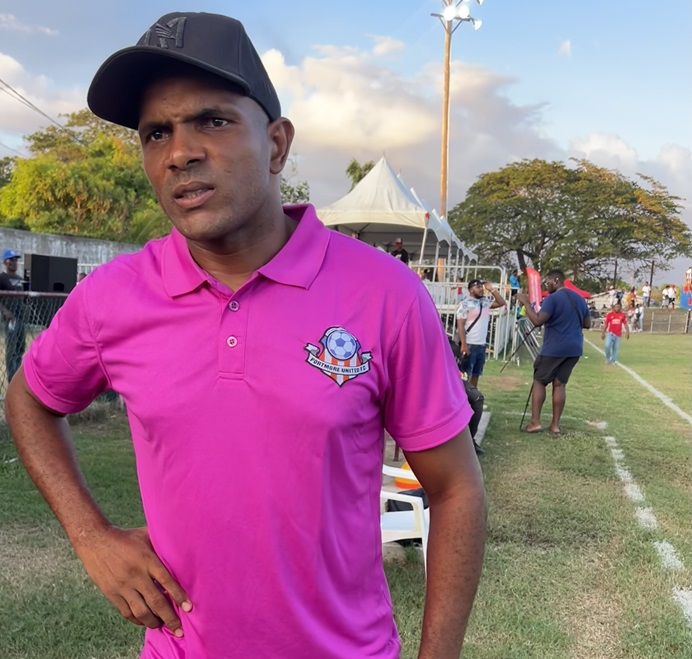The eighth round of the Jamaica Premier League, played under challenging rainy conditions, saw the top three teams solidify their dominance with decisive victories. Montego Bay United, led by Jourdain Fletcher’s double, secured a 2-0 win against Molynes United, extending their winning streak to five games and outscoring their opponents 15-0 in the process. Fletcher’s goals in the 45th and 58th minutes brought his tally to five, tying him with teammate Dwight Miekle for the league’s top scorer. Meanwhile, Racing United ended a three-game goal drought with a commanding 3-0 victory over Spanish Town Police FC, who played the entire second half with 10 men after Anil Ferguson’s red card. Portmore United also bounced back from consecutive draws, overcoming defending champions Cavalier 4-2 in a thrilling match that featured a brace from Ronaldo Robinson. Elsewhere, Mt Pleasant FA climbed to ninth place with a 3-1 win over Chapelton Maroons, while Tivoli Gardens snapped a four-game winless streak with a 2-1 comeback victory against Harbour View. The round also saw a dramatic 0-0 draw between Treasure Beach and Waterhouse FC, where three penalties were missed, and the Arnett Gardens vs. Dunbeholden FC match was postponed due to weather conditions.
博客
-

The No Man’s Land challenge
The Buccoo Marine Park and No Man’s Land in Tobago face mounting environmental challenges, with a recent incident on October 5 underscoring the urgent need for stricter enforcement of ecological preservation measures. A party boat sank in the shallow waters off No Man’s Land, highlighting the fragility of this treasured ecosystem. This secluded area, accessible primarily by boat, is a Ramsar-listed Wetland of International Importance, renowned for its unique blend of freshwater and saltwater habitats. Since the 1990s, it has become a popular destination for glass-bottom boat tours, barbeques, and festivities. However, the delicate ecology of No Man’s Land is gradually degrading due to unchecked tourism and a lack of formal regulations. Currently, beach use is governed by an informal gentleman’s agreement among visitors, but recent violent incidents, including a stabbing in August 2024 and a bloody brawl in July, have shaken this sense of shared responsibility. Concerned for client safety, reef tour operators are increasingly omitting No Man’s Land from their itineraries. Unlike natural threats such as coral bleaching or lionfish invasions, the enforcement of a code of practice among tour operators falls within the Tobago House of Assembly’s (THA) jurisdiction. To preserve the sanctity of this peaceful location amidst Tobago’s growing tourism industry, collaboration among marine experts, tour operators, and visitors is essential. A sustainable approach, focused on conservation and mindful use of this fragile ecosystem, must be prioritized.
-
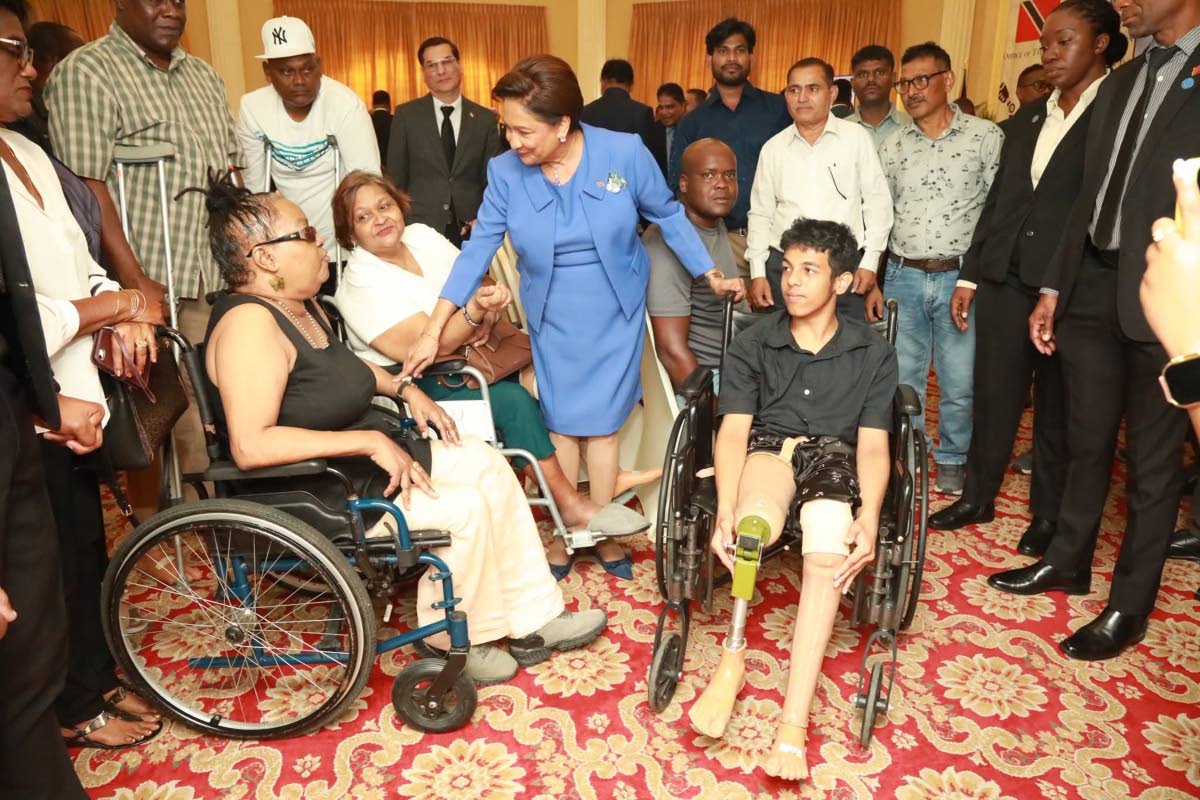
EOC supports Jaipur Foot Centre in Trinidad and Tobago: Walking toward equality
In a landmark move toward social justice and inclusion, Prime Minister Kamla Persad-Bissessar has announced the establishment of a Jaipur Foot Artificial Limb Fitment Centre in Trinidad and Tobago (TT). This initiative, unveiled during a ceremony at the Diplomatic Centre in St. Ann’s on October 3, underscores the government’s commitment to restoring independence and dignity to individuals with disabilities. The Jaipur Foot Organisation, renowned globally for its cost-effective and innovative prosthetic solutions, has already transformed millions of lives worldwide. By bringing this model to TT, the nation takes a significant step toward ensuring free, world-class prosthetic services for its citizens. This project transcends healthcare, embodying a broader vision of equity and social participation. It aligns with the Equal Opportunity Commission’s (EOC) mandate to combat discrimination and promote equal opportunities for all, particularly for those with disabilities, who are protected under the Equal Opportunity Act. The centre will not only provide medical support but also empower individuals to rejoin the workforce, pursue education, and engage fully in their communities. The initiative’s far-reaching benefits include economic empowerment, emotional well-being, and national development, as restored mobility enables individuals to contribute meaningfully to society. The project is a testament to international collaboration, with the TT government partnering with India’s government and the Jaipur Foot Organisation. This partnership emphasizes sustainability through knowledge transfer and local capacity building. The EOC lauds this effort as part of a broader national strategy to foster inclusion, urging employers and educational institutions to embrace accessibility and diversity. The establishment of the Jaipur Foot Centre is a moral and national achievement, reflecting TT’s commitment to treating its most vulnerable members with dignity and respect. It serves as a reminder that investing in people’s potential strengthens the nation’s future. The EOC encourages citizens to celebrate this progress while continuing to address challenges to ensure every individual in TT has the opportunity to thrive.
-

Caribbean cryptocurrency concerns
At a recent webinar on October 2, hosted by the Caribbean Digital Finance Alliance (CDFA), fintech professionals across the Caribbean convened to discuss the pressing issue of cryptocurrency regulation. The event, set to formally launch in November, was prompted by Trinidad and Tobago’s (TT) recent proposal to ban virtual assets, sparking a broader regional dialogue on the matter. Moderator Dennis Augustine emphasized that the discussion aimed to explore fundamental policy questions rather than critique specific legislation. He posed a critical question: Should the Caribbean adopt a cautious approach to virtual assets, or is outright prohibition the more prudent stance? Mark Pereira of ZLabs highlighted TT’s forex constraints, noting that the Central Bank’s opaque distribution of US dollars has led individuals to seek alternative methods, including cryptocurrency. Pereira advocated for regulated use of stablecoins to improve forex accessibility. Annie Bertrand of the CDFA underscored the influence of the Financial Action Task Force (FATF) in shaping regional financial compliance, while Prof Louis De Koker warned against the pitfalls of both pausing and banning virtual assets. Pereira proposed a public-private partnership framework, suggesting a regulatory sandbox to allow the Central Bank to test its systems. He emphasized that collaboration between the government and private sector could lead to a progressive virtual asset bill. De Koker echoed this sentiment, highlighting the private sector’s market insights as invaluable to regulators. With the global crypto market now valued at $4 trillion, the consensus was clear: all countries must adapt to this evolving financial landscape.
-
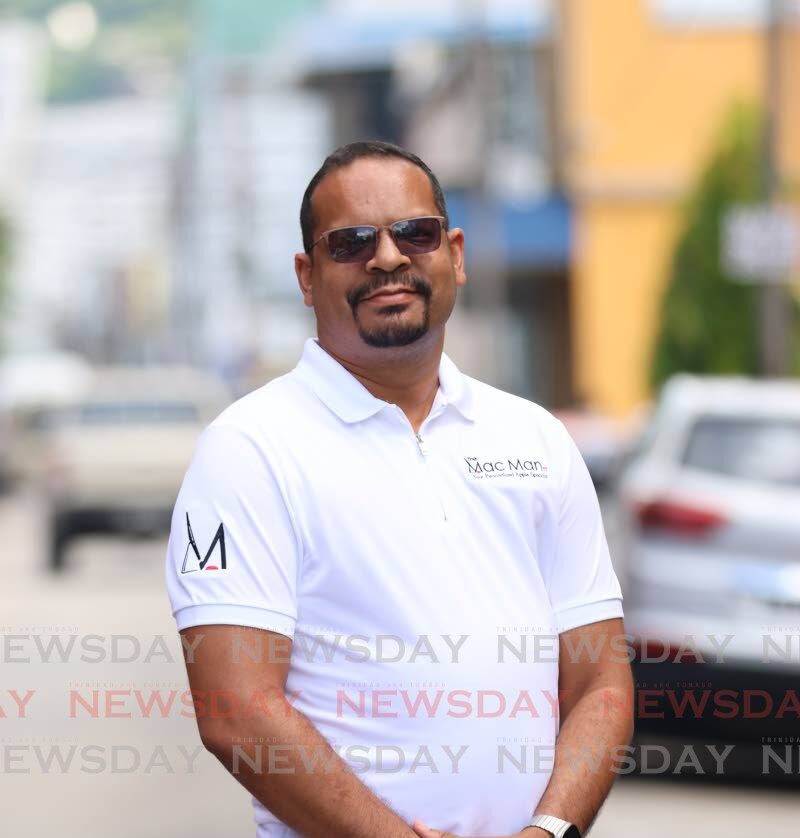
Furillo Narine wants to end breast cancer stigma: ‘Men can get this too’
Furillo Narine, a 39-year-old from Couva, Trinidad, never imagined that a small lump in his chest would change his life forever. Initially dismissing it as insignificant, it was only after a playful moment with his son and his wife’s insistence that he sought medical advice. In August 2022, Narine was diagnosed with stage 2 breast cancer, a condition he didn’t believe could affect men. His disbelief turned to shock when the diagnosis escalated to stage 3A after the cancer spread to his lymph nodes. Undergoing surgery, chemotherapy, radiation, and hormone therapy, Narine’s battle was grueling. The emotional toll of losing his hair and a near-fatal sepsis episode during his final chemotherapy session marked the darkest moments of his journey. Yet, through it all, his wife Joanne Sinanansingh remained his pillar of strength. Post-recovery, Narine left his corporate career to start his own business, The Mac Man TT, focusing on online sales and tech support. More importantly, he prioritized his health and family, reclaiming precious moments with his loved ones. Narine now uses his story to raise awareness that breast cancer is not exclusive to women, urging men to seek medical attention if they notice unusual symptoms. His journey is a testament to resilience, love, and the importance of redefining life’s priorities.
-

A policewoman’s journey of faith: ‘Cancer doesn’t have me’
Michelle Clement, a dedicated police officer for 15 years, faced a life-altering moment in October 2022 when she was diagnosed with stage 4, grade 2 invasive lobular carcinoma, a form of breast cancer that had spread to both breasts and her lymph nodes. The news initially plunged her into fear and uncertainty, but Clement chose to lean on her faith and resilience to fight the disease. ‘The first thought that came to my mind was that I was going to die and leave my family behind,’ she recounted. However, she made a conscious decision to choose hope over despair, reminding herself that her faith in God was stronger than any medical diagnosis. Clement’s cancer was hormone receptor-positive, which opened up treatment options that have helped slow the progression of the disease and improve her quality of life. For her, every day is now a victory, and she celebrates small milestones with gratitude. Physically, the treatments have been grueling, leaving her tired, weak, and nauseous. Emotionally, she struggled with the thought of her family’s future without her. Yet, spiritually, she found strength in her faith, holding onto the belief that God’s strength is made perfect in her weakness. Clement’s journey has brought her closer to her family, especially her daughters, Clay-Ann and Chloe, who have been her pillars of support. Clay-Ann, 18, and Chloe, 21, have both been inspired by their mother’s courage and resilience. ‘She is, without a doubt, one of the strongest people I’ve ever known,’ Chloe said. Clement hopes her story will encourage others to prioritize regular screenings and early detection. ‘Cancer is not a death sentence,’ she emphasized. ‘Even at stage 4, you can still live a full, meaningful, and joyful life.’ She urges families facing similar challenges to stay positive, do their research, and surround themselves with uplifting people. Clement dreams of a future where cancer has a cure and looks forward to seeing her children graduate, get married, and start families of their own. Her message to women during Breast Cancer Awareness Month is clear: ‘Cancer is a word, not the end of your story.’
-
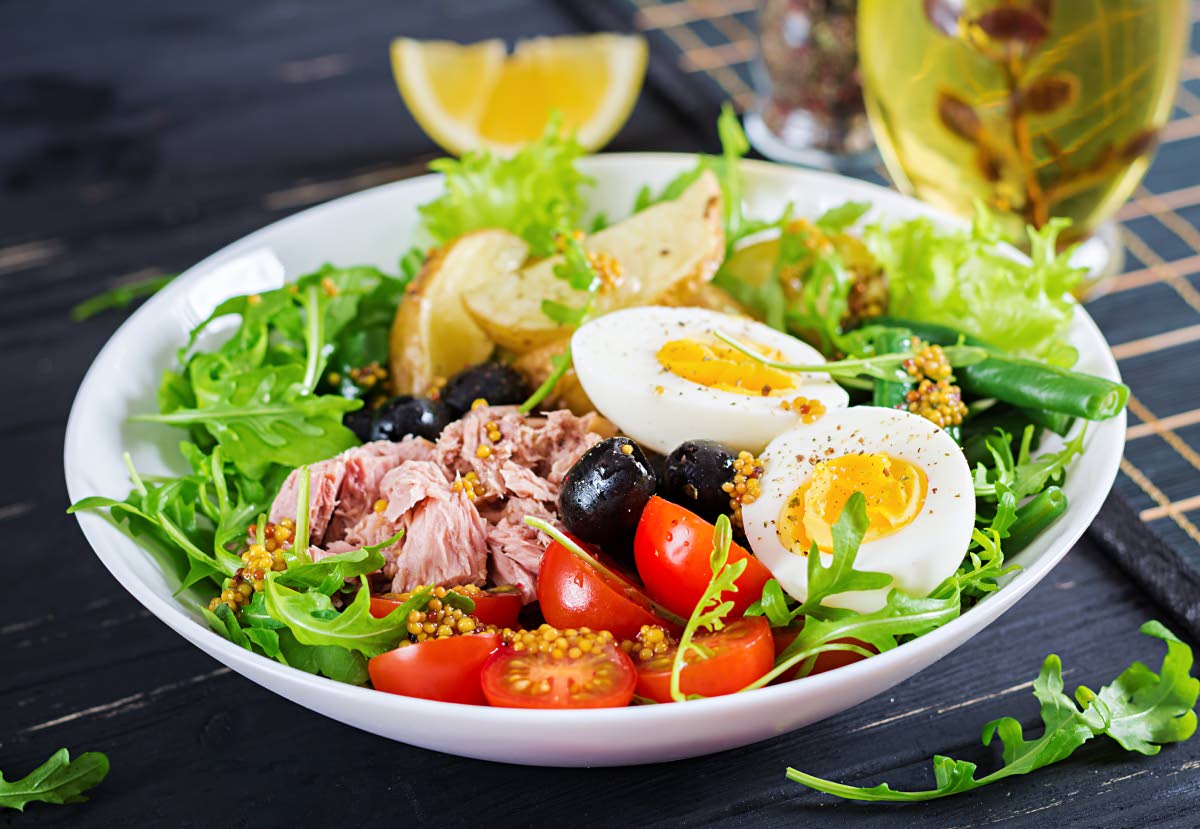
Nourishing the body with healthy eating
The importance of diet in cancer prevention, treatment, and recovery is increasingly supported by scientific evidence, according to surgical oncologist Dr. Rajen Rampaul. He highlights that dietary choices not only reduce cancer risk and recurrence but also play a pivotal role in overall health. Regulatory bodies, such as the International Agency for Research on Cancer, have classified certain foods, particularly red meat, as class-one carcinogens, linking them to colorectal and breast cancers. Dr. Rampaul warns against misleading online information about anti-cancer diets and supplements, emphasizing the need for evidence-based medical guidance. He advocates for whole, plant-based diets, such as the Mediterranean or vegetarian patterns, which are associated with longer, healthier lives. Anti-oestrogen foods like soy, beans, spinach, flax seeds, and turmeric are particularly beneficial. Conversely, foods that promote a high-oestrogen environment may increase cancer recurrence risk and should be minimized. Dr. Rampaul also underscores the benefits of fasting, citing a 2020 study that showed intermittent fasting boosts the immune system. He advises avoiding animal proteins and saturated fats, which contribute to inflammation and elevated cancer risk. Smoking and alcohol should also be eliminated to reduce cancer risk. For patients undergoing treatment, Dr. Rampaul emphasizes the importance of pre-habilitation—enhancing nutritional status before treatment begins. He recommends prescribed protein supplements, protein-enriched drinks, and a balanced intake of vitamins and minerals. Hydration is crucial, with a daily intake of at least three liters of water recommended. Post-treatment nutrition should focus on rebuilding strength, maintaining a healthy weight, and reducing recurrence risk through balanced, evidence-based dietary choices. Dr. Rampaul encourages patients to work with dietitians to adapt these principles to local cuisine, ensuring dietary changes are practical and enjoyable. He concludes that adopting a whole-grain, plant-based diet, avoiding processed foods and red meat, and staying hydrated are simple yet powerful steps toward sustained wellness after cancer treatment.
-

Understanding breast health in young girls
Breast health is often perceived as a concern primarily for adult women, particularly those in their 30s and 40s. However, Dr. Rajen Rampaul, a renowned breast oncologist and reconstructive surgeon, emphasizes that awareness should begin much earlier—even in childhood. As the medical director at Pink Hibiscus Breast Health Specialists, Dr. Rampaul has dedicated decades to breast care and cancer treatment, advocating for a proactive approach to breast wellness. He explains that breast development in young girls, typically between ages eight and 15, is a natural part of puberty. During this period, the emergence of the breast bud, often accompanied by discomfort or pain, is a common occurrence. While these changes can cause concern among parents and young girls, Dr. Rampaul reassures that they are almost always normal and not indicative of health problems. Breast cancer, he stresses, is extraordinarily rare in this age group, with medical literature recording only isolated cases worldwide. Instead, the most common breast condition among adolescents is fibroadenoma—a benign lump that is non-cancerous and rarely a cause for concern. Dr. Rampaul underscores the importance of education and reassurance for both parents and young girls. He recommends consulting a doctor when unusual symptoms arise, not because cancer is likely, but to provide clarity and peace of mind. Ultrasound is the preferred imaging tool for this age group, as it is safe, painless, and free from radiation risks. Hormonal changes during puberty are the primary drivers of breast development and related discomforts. Conditions like polycystic ovarian syndrome (PCOS) can also influence breast health, causing pain and lumpiness due to erratic hormonal cycles. While family history plays a significant role in assessing breast cancer risk in adults, Dr. Rampaul assures that genetics are not a factor during puberty. He advocates for schools and communities to play a pivotal role in promoting breast-health awareness, focusing on normal development and benign conditions rather than instilling fear. Early education, he believes, empowers girls to grow into confident, informed women who are unafraid to take charge of their health.
-
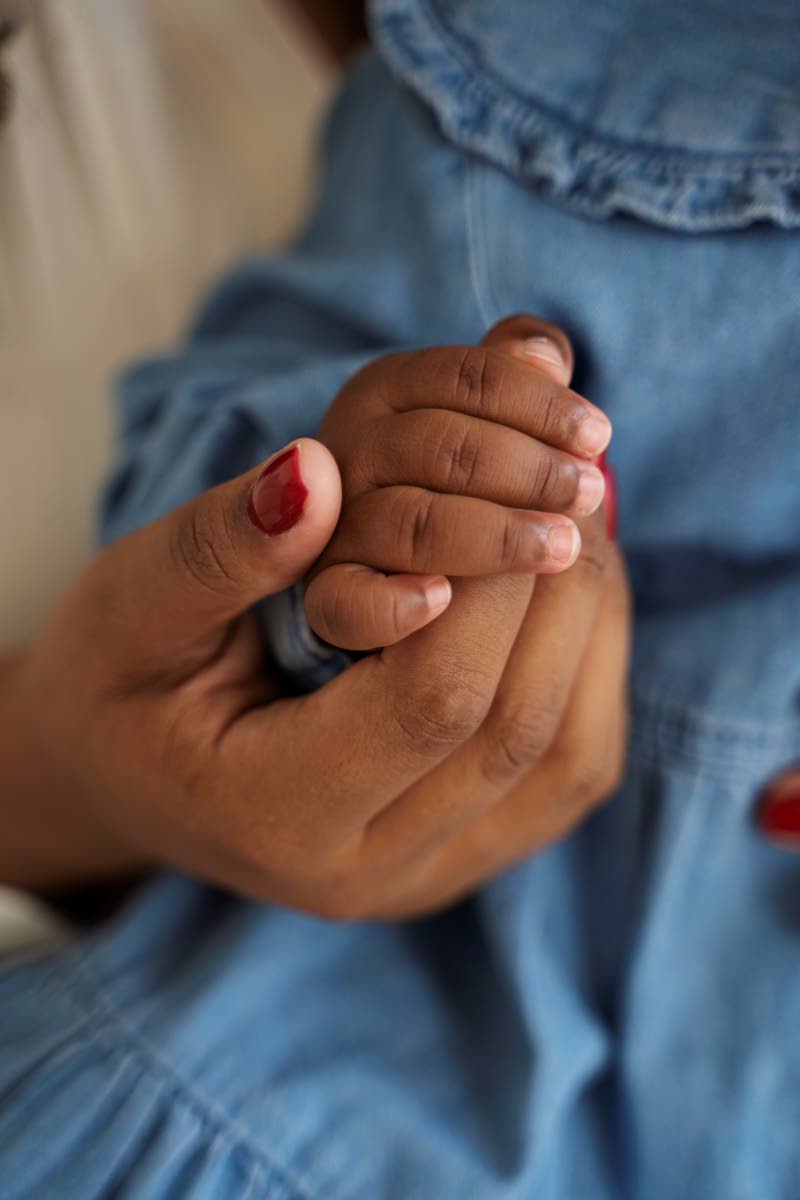
Motherhood after breast cancer
A breast cancer diagnosis can feel like a life-altering setback, especially for women aspiring to start or expand their families. However, Dr. Rajen Rampaul, a renowned breast oncologist and reconstructive surgeon, offers a message of hope and empowerment. With nearly three decades of experience, Dr. Rampaul has dedicated his career to advancing women’s health and breast cancer care. As the medical director at Pink Hibiscus Breast Health Specialists, he leads one of the Caribbean’s premier centers for breast-related treatments, specializing in radioactive and oncoplastic surgeries—procedures recognized as the global gold standard.
Dr. Rampaul emphasizes that breast cancer does not mark the end of a woman’s dreams of motherhood. Advances in treatment and fertility preservation have made it increasingly safe for survivors to conceive and raise children. While breast cancer itself does not directly impact reproductive potential, the choice of treatment can significantly influence fertility. For instance, chemotherapy can affect ovarian cells, potentially impairing egg production, whereas radiation therapy, typically directed at the breast, does not harm fertility. Hormone therapy, however, can reduce estrogen levels, which are crucial for fertility and pregnancy.
To address these challenges, Dr. Rampaul highlights the importance of individualized fertility preservation strategies. Options include ovarian suppression, tissue freezing, and, in some cases, embryo harvesting. However, he cautions that time constraints often make embryo harvesting impractical for urgent cancer treatments. For women with hormone-positive cancers, ovarian stimulation is not recommended, but tissue freezing remains a viable option.
Pregnancy after breast cancer requires careful planning and medical supervision. Dr. Rampaul advises waiting at least five years post-treatment, though this timeline must consider the patient’s age and cancer type. Hormone-positive cancers pose a higher risk of recurrence during pregnancy due to elevated estrogen levels, whereas hormone-negative cancers do not carry this risk. Breastfeeding after treatment depends on the type of surgery and whether radiation was involved. While mastectomy or radiation may limit breastfeeding ability, it does not affect a woman’s capacity to conceive or deliver a healthy baby.
Dr. Rampaul underscores the importance of emotional and psychological support for breast cancer survivors. He encourages women to seek comprehensive counseling and utilize growing online support systems. ‘Our role as medical practitioners is to help patients achieve a full and beautiful life, which includes the possibility of motherhood,’ he says. With modern medical advancements and compassionate care, breast cancer survivors can confidently pursue their dreams of starting or growing their families.
-
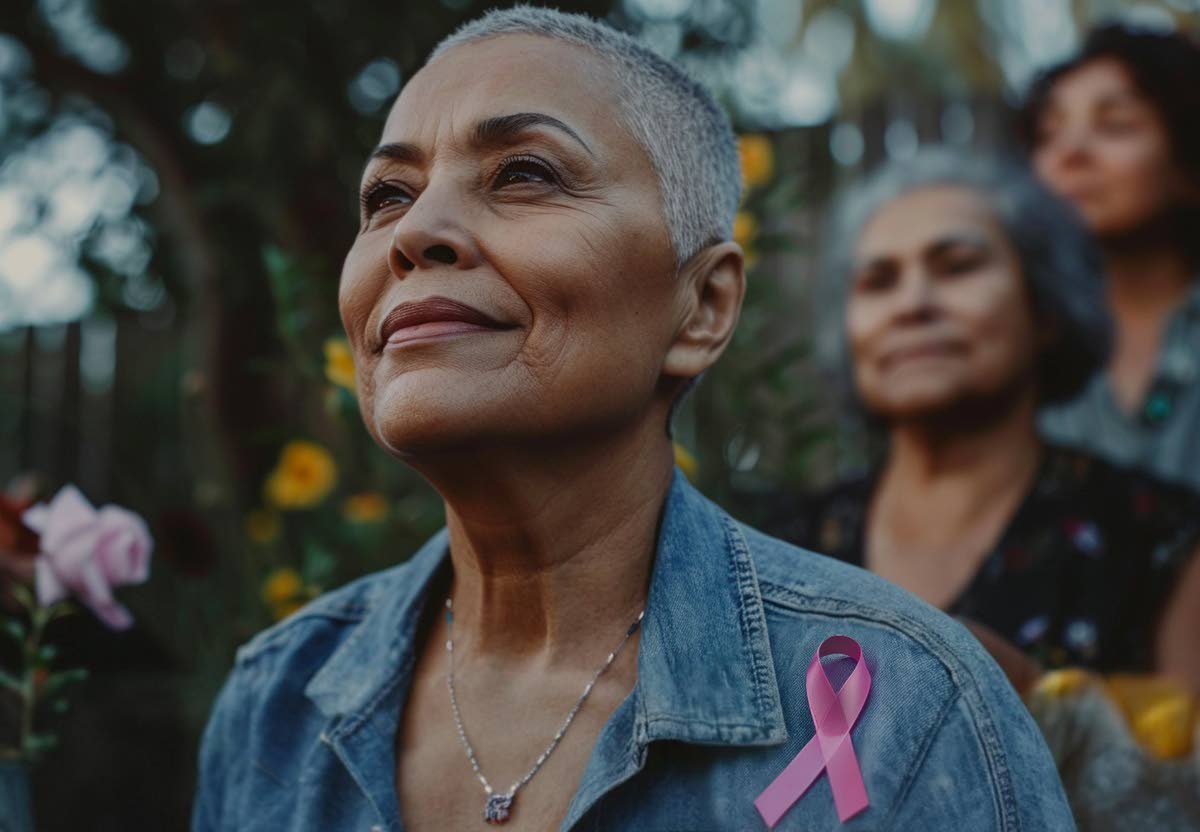
Living a full life, road to recovery
Breast cancer, a life-altering diagnosis, often shatters the dreams of young women, including aspirations of marriage, motherhood, and career growth. Dr. Rajen Rampaul, a breast oncologist and reconstructive surgeon, highlights the unique challenges faced by younger patients, particularly concerns about fertility, identity, and long-term plans. Unlike older women who may have already raised families, younger survivors grapple with the emotional and physical toll of treatment, including fatigue, scarring, and fertility loss, which disrupt their daily lives and responsibilities.
Dr. Rampaul emphasizes the transformative role of breast reconstruction in restoring confidence and reintegrating survivors into society. Psychological support, he notes, is equally critical, with initiatives like the Think Pink support group providing a safe space for women to share experiences and navigate their journeys. He underscores the importance of open communication with partners and family members to maintain healthy relationships during recovery.
Practical lifestyle changes, such as maintaining a healthy weight through diet and exercise, are vital for reducing the risk of recurrence. Dr. Rampaul also advises regular follow-ups, adhering to international guidelines, to monitor patients’ health. For those concerned about their children’s risk of developing cancer, he recommends proper risk assessment based on family history and age.
Ultimately, Dr. Rampaul encourages survivors to embrace life fully, emphasizing that healing begins with honesty, connection, and the belief that life can be wholesome again. ‘Communication is the key,’ he says, urging patients to share their fears and seek support from loved ones and professionals.
